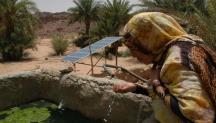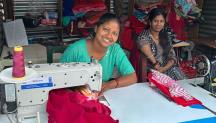

IRENA and Central Asia Look to Advance Renewable Energy in the Region
Newsletter
Central Asian countries possess a large potential of renewable energy and have been increasingly involved in the renewables dialogue over the past few years. The vast resource potential in the region provides opportunities for increasing uptake. However, Central Asian countries are at different levels of readiness for the adoption of renewable energy solutions as there are several factors (e.g. high fuel subsidies) that are delaying the opportunity to increase deplyoment.
Within the framework of the 7th International Forum on Energy for Sustainable Development, IRENA organized its first Central Asia Consultation Meeting, with the objective to enhance the dialogue in the renewables sphere among government experts, key national and regional stakeholders. The meeting aims to explore the regions renewable energy needs and priorities taking into consideration existing initiatives.
“We welcome IRENA’s efforts in its role as an intergovernmental facilitator for dialogue on renewables,” said Jamil Malikov, Deputy Chairman of the Azerbaijan Renewable Energy Agency. “This Consultation Meeting is a great opportunity for experts to exchange ideas and offer solution to the needs of the region. In Azerbaijan, the government is committed to developing its vast renewable energy potential and has set an ambitious target of 20% renewables in electricity generation by 2020.”
Almost all of the countries in the region have adopted legislation on renewable energy and energy efficiency and underlined the importance of developing renewables in their long-term strategies.
“It is encouraging to see that Central Asian countries are making positive steps towards deployment of renewable energy,” said Gurbuz Gonul, IRENA Senior Programme Officer for Regions.
“Yet there is a need for additional concerted efforts in the region in support to the national strategies of the countries to facilitate renewables deployment. We strongly believe that IRENA can bring value and expertise to the region and take an active role, in close collaboration with other development partners, to support the governments in their efforts,” added Mr. Gonul.




